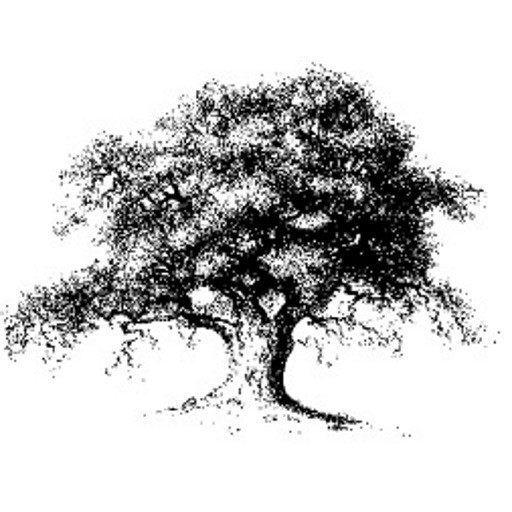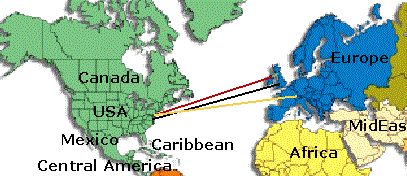Kever Ancestors
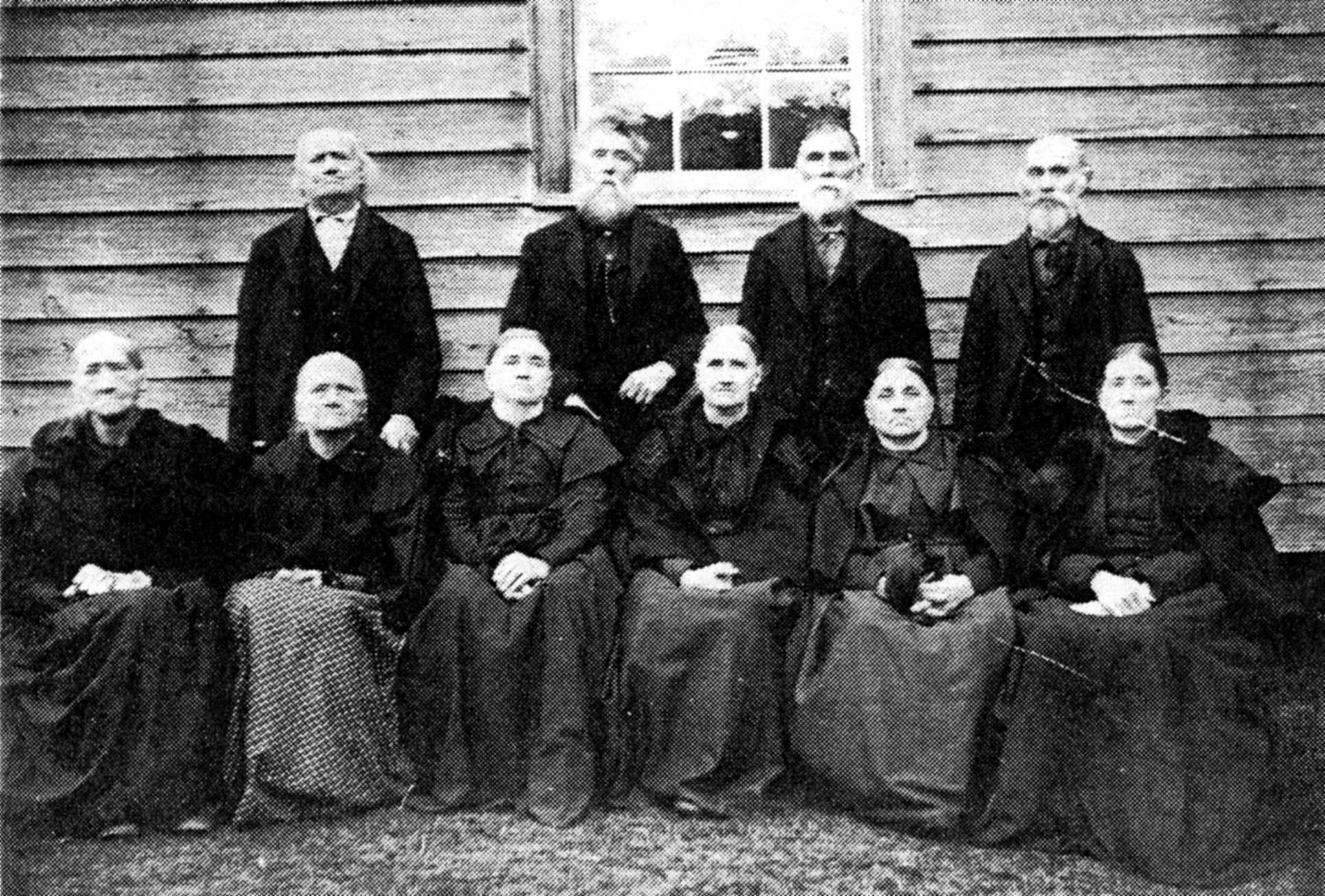
New Information: John Kever, father of Jacob Kever, listed on a List of German Passengers on Board the Ship North America, Tys de Haas, from Amsterdam, October 10, 1787.
On a list of the Names of Persons who took the Oath and Affirmation of Allegiance to this State, passed the fourth of March 1786, dated September 24, 1787. John Kever, of the Northern Liberties, Cordwainer, took the oath on October 10, 1787.
Enrolled in the Rolls Office of the State of Pennsylvania in Commission Book No 1 Page 101, Witness my hand and Seal of Office, the 20 October 1790, Matthew Irwin.
Jacob Artimaes (various spellings used) Kever (126) (1792-1880) was the first of the Kevers we know much about. He is shown on the 1820 census in Iredell County, North Carolina but not on the 1810 one, so presumably he arrived there in that ten year period.
Martha Kever Rakes has shared with me a history of the Jacob Artimus Kever family written by a descendant, Homer M. Keever. Much of the information about the Kever and Correll ancestors comes from his account. He says it is not clear who Jacob A.’s parents were, that some descendants think his father was named Henry, but no records can be found to document this. He says that Jacob A.(126), who lived at Third Creek, was probably the son of Jacob Kever of Norwoods Creek. Word of mouth stories told by descendants say that Jacob A.’s father died when he was about 12 years old, in 1804 or 1805 and there was a Jacob Keever at Norwoods Creek who died at that time.
The same tradition says that Jacob was bound out to a blacksmith and census records bear this out. He became a blacksmith and used earnings from his trade to buy land for farming and taught his sons to be blacksmiths. Iredell County indentures of the day required that one bound out be given a rudimentary education as well as being taught a trade.
In those days it was not uncommon for needy families to put out a child to serve as an indentured servant. The family from which he came would get some badly needed money, the the child could learn a trade. It seems plausible that this might have happened soon after the death of Jacob’s father. Sometime about the time he was 21 and his indenture completed Jacob Kever (126) married Mary Ann Correll (127) who lived near the head of Third Creek in what was then Iredell County.
The first documented evidence of Jacob at the head of Third Creek is to be found in two deeds made to him in 1817, one of which was made by his father-in-law, John Correll (318). Eventually, Jacob acquired and paid taxes on 530 acres on Third Creek and the head of Elk Shoal Creek. It is said that his goal was to leave each of his children a tract of land and there are deeds to some of the daughters to suggest that he tried it. After Mary (319) died in 1859 he made over his farm to his son, Artimus, to care for him.
Mary Ann Correll Keever (127) spent all of her life near her birthplace in North Carolina but Jacob made a big move after he was widowed and an old man. He deeded his property to a son, Jacob Artimus, Jr. who wanted to “seek his fortune” in Arkansas. Soon after 1870 the son and his family, along with Jacob Sr. moved to the Wolf Bayou area.
We have a copy of a letter Jacob A. (Sr.) (126) wrote on July 11, 1872 from their farm in Arkansas which shows that wherever he got his education, he definitely had the ability to express his thoughts in writing, (but too bad he didn’t have a computer with a Spell-check!) He was writing to his son, John Calvin Kever, and family who still lived at Taylorsville, North Carolina. Here’s the letter:
Letter’s Home
“Dear Children:
“I seit myself to try to rite a few lines and to inform you that we are all well at this time–except myself. I am not so hardy as I was some time ago. I think the dry and hot weather (causes) summer complaints. And when thease few lines come to hand, will find you all well and doing better.”
“My fare is like it has bin. I can tell you that we are living in a naighborhood (where) the people wants to do right. I have not heard a profine word spoken sense I am out hare.”
“Thomis Payne Jr. wants to know if a man can live easer hare than in Carolina, and (he says) all of you wants to move. I will tell you we live in a brokin rough rocky part, but it is healthy–as much so as where you live. I can tell you that the river bottom is for welth and the riches. For helth we have good water near as any in these parts.”
“The land produces from 20 to 25 buchels (corn) to the acre and lasts as long again as whare you live. We can git a bale of (cotton) to 350 pounds to two acres. But if a man coms out hare to own the country before he moves, he will not like it, but it is like a stranger com into a nabourhood that you think he is the homlist person you ever saw. After you git used to him you will think that he is a rite pert fellow. And so you will think of this country when used to it–so it is a rocky rough country.”
“I will tell you that the people hare burns the woods like they did in Carolina and in the time of the war (Civil) (there was) nobody to fight the fire and all the improved placeis ware burned up–that is, fences and cabans.”
“Thare is planty of vacant land yet. If a man moves hare full handed (with money) to by a improved place he can git along very well. If not, it will take him three or four years and than may git along and make more that he can in Carolina.”
“Artamus (his son) baught 80 acres from a wider joinging (his farm) and that give him a batter start. I cant put down all the items, but on this last lot, there is a bout two hundred baring peach trees and he made a bout $20 off the orchet last fall.”
“I mus soone com to a close. When I look so steady my head gits dissy but this is about as good an 80 years old man can do.”
“Jacob Kever to the childran and all inquiring frends. To J. C. Kever and family. My name again Jacob Kever.”
How would you respond to Jacob’s letter? Didn’t you get the impression that it was a little less than a ringing endorsement of Wolf Bayou, Arkansas as a place to go for your future — especially if your goal was “welth and riches” instead of the absence of profanity? I’m not sure how much influence his letter had, but only one of his other children moved to Wolf Bayou, Exie Kever Sharp. However, of course some grandchildren and great grandchildren came, including our ancestor, Hubert Martin.
Following is a historical sketch written by my mother, Elva Martin Stuart about the Kever ancestors using the information she had at the time she wrote it in the 1960’s.
“Jacob Artimaes Kever – great grandfather of Hubert M. Martin and Samuel Gatis Martin, also of Arthur Marvin Kever, was born June 1792, died August 17, 1880 – 88 + years buried in Oak Grove Cemetery at Wolf Bayou, Cleburne County, Arkansas. He came to the United States from Germany, was of German “deutsch” descent, spoke the German language, then learned to speak English with considerable accent.”
“He settled near Hiddenite, North Carolina. He was the father of four sons and six daughters, most of whom lived their entire lives around Hiddenite, N.C. Children’s names are as follows: Sons: Davidson Kever, Jacob Artimaes, Jr. (or Uncle Art), John Kever, Calvin Kever. Daughters were: Mary Emmaline Kever born 1823 wed to Clint Prichard, Rachel or Aunt Lena wed to John Lackey (twin girls Adeline or Addie Kever Warren and Katie Kever Payne), Miranda or Aunt Martha wed to George Washington Martin, Exie wed to Frank Sharp, son of Azel Sharp.”
“Soon after the Civil War, J. A. Jr. (Uncle Art) moved with his family and aged father to Arkansas, following a brother-in-law, D. W. McDonald. Then Exie, whose husband had died, moved with her family to Arkansas also.”
“Some have tried to locate a large thick book with wooden backs, a bible in the German language that belonged to grandfather Jacob A., but without success as far as I know. It is said that Exie, the youngest, was in chart class at school. They had no books like the other kids so she took a smaller book of her dad’s. Guess it didn’t profit her much – being in the German language!”
“The ones (Kevers) from Arkansas went back to North Carolina in 1900 or 1901. Some of us have some pictures and copies of pictures made on that trip back there for a visit. The Kever family has three grandfathers buried in Oak Grove Cemetery, Grandfather John Kever, Great Grandfather (Uncle Art) and Great-Great Grandfather, “Uncle” Jacob A. Kever.”
Jacob A. (126) may have been born in Germany, perhaps in Pennsylvania, or North Carolina. The name was usually spelled “Keever” in North Carolina, but the Kevers who came to Arkansas changed their spelling to “Kever” so that is the spelling used by their descendants today. The Kever (Keever) family has frequent family reunions in North Carolina and some of our relatives, including Martha Kever Rakes, have attended them.
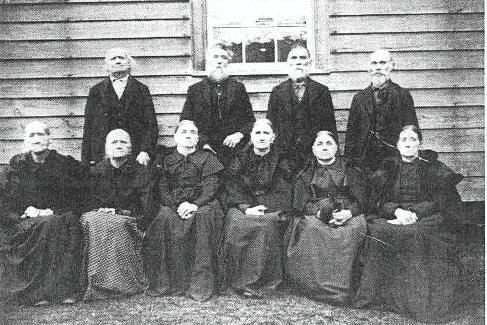 <
<
The children of Jacob and Mary Ann Correll Kever at a Kever Family Reunion in North Carolina about 1900.
Front row; left to right; Ellena Kever Lackey, Emmaline Kever Prichard, Catherine Kever Payne, Adeline Kever Warren, Miranda Kever Martin, Exemina Kever Sharpe.
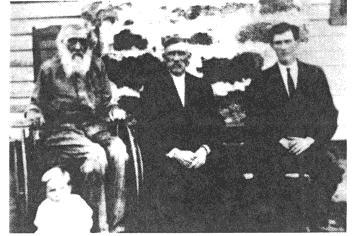
Artimus Kever, son John,
grandson Arthur and great grandson Emerson,
about 1916.
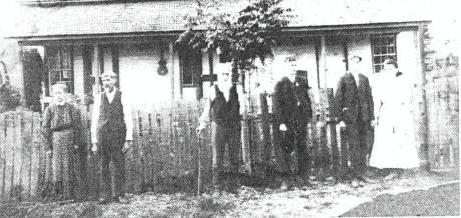
Left to right; John and Donia Southerland Kever, Artimus Kever (John’s father), Arthur (John’s son), Elvin and Nettie Holland Kever. Nettie was raised by John and Donia Kever and Elvin was John’s nephew.
Jacob Kever (1792-1880) Buried at Oak Grove Cemetery.
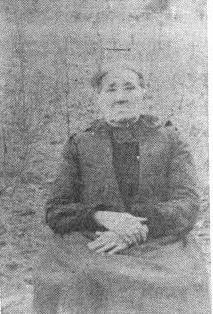
Exemina “Exie” Kever Sharpe
1836 – 1929
Exie Kever Sharpe was the ninth of ten children of Jacob and Mary Ann Correll Kever. She was born in North Carolina July 23; 1836. After the death of her husband, Frank Sharpe, she and their children moved to Wolf Bayou, Arkansas. Her widowed father, Jacob Kever, was living with his son Jacob Artimus who had moved here in 1870. One of Exie’s daughters, Amanville, had married John Barker and had taken up land in Section 19 at Wolf Bayou. Exie took a patent on land joining them in 1890. This land was beside the Batesville-Clinton Road and along the old Cherokee Boundary Line. (Now the home of F.J. Hartwick.) Exie’s children were (not in order of age): John, Walter Jacob, Orah, Matilda “May”, Bevin, Amanville. With her Kever bloodline plus the large families raised by her children she always said she “reckoned she was kin to all of Adam’s race”.

